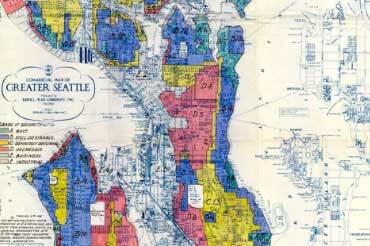The King County Council on Dec. 5 approved a motion requesting the executive to provide recommendations to restore justice for race-based restrictive real estate practices, building on a previous, comprehensive report on the impacts of historic redlining across King County for Black, Indigenous, and People of Color (BIPOC).
According to the county, redlining practices and restrictive covenants prevented BIPOC residents from accumulating wealth and assets through homeownership.
The previous report estimates that, because of race-based restrictive real estate practices, BIPOC county residents lost intergenerational wealth between $12 billion and $34 billion. The report specifically explored whether an exemption from the County’s wastewater capacity charge could provide restitution for those impacted by racial deed restrictions; however, that exemption was not recommended due to federal and state legal limitations.
“I am very pleased that the motion passed today with support from my colleagues, as it lays the groundwork for restorative work in the future,” said King County Councilmember Jeanne Kohl-Welles, who sponsored the motion. “It’s vital that we acknowledge the injustices of the past as we move forward.”
Kohl-Welles’ motion will build on that report and look for other ways to atone for the harm done by redlining and other structural racist policies and practices. Some policies explored by other local jurisdictions include direct cash payments, housing assistance, education assistance or job training, land return, and startup capital, among others.
“In local government, there are always a million competing priorities, and the next several years will be no different with the revenue shortfall and budget cuts that have been projected,” Kohl-Welles said. “This report will ensure that we have potential strategies to charter a more equitable future. And, in the meantime, I trust that keeping this work at the forefront will minimize harm to communities that have been underinvested in for decades.”
In the context of looming cuts to the County budget, the motion also urges the Executive to consider general fund budget reduction proposals for the 2025 annual budget that minimize the loss of intergenerational wealth, eviction rates, low Black homeownership rates, and general financial insecurity for BIPOC county residents.
The report is due back to Council by June 1, 2024


